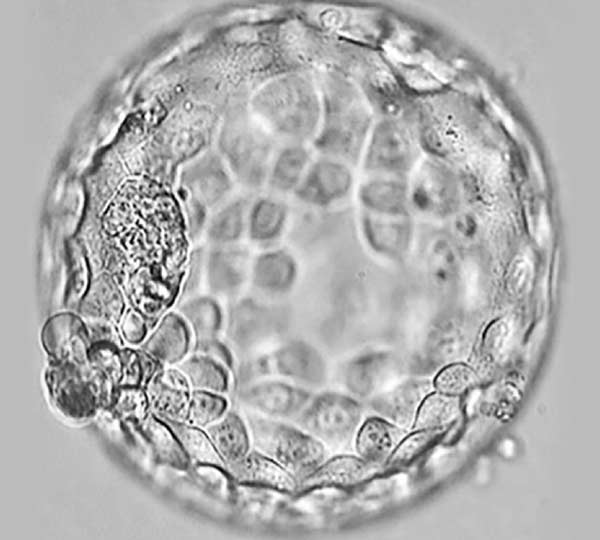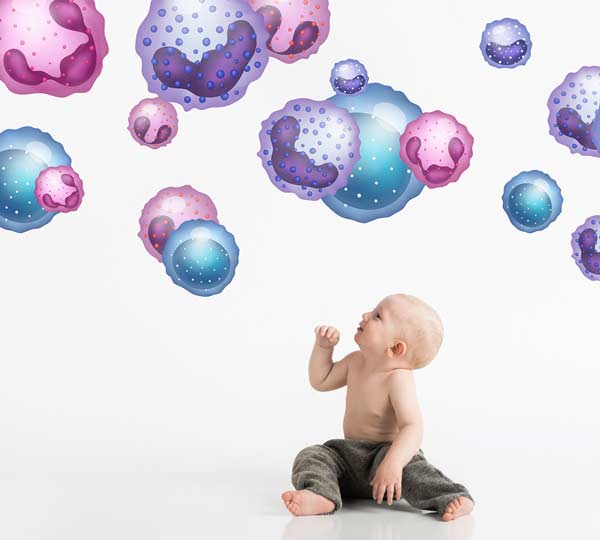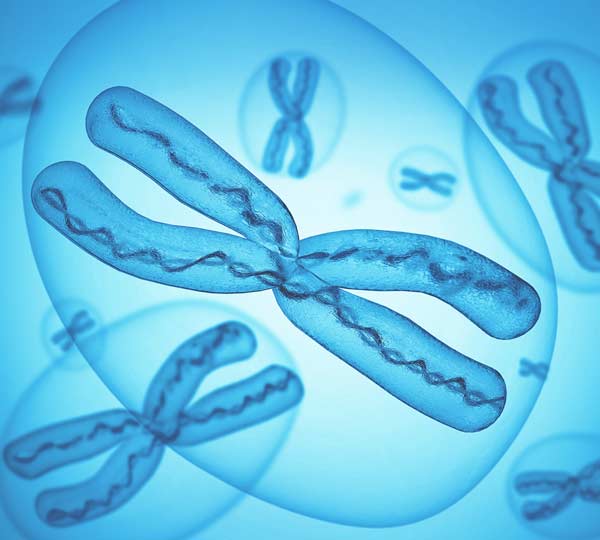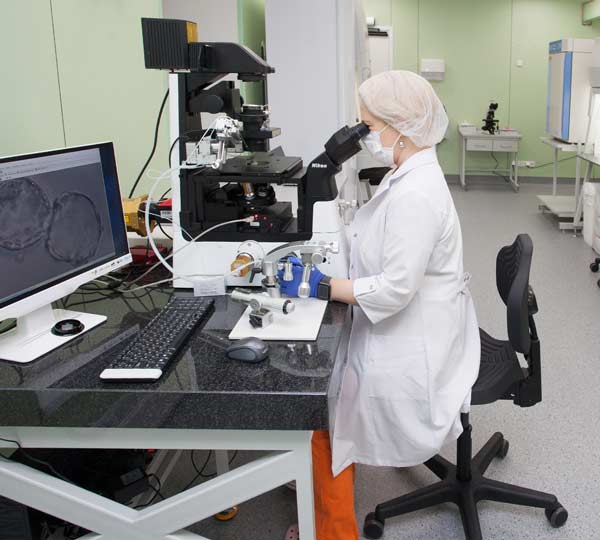When should I be tested?
A woman at a fertile age has a 15–20 % chance of becoming pregnant during her menstrual cycle. Sixty percent of the couples trying to have a baby succeed during the first six months of trying. If, after several attempts, you have not become pregnant within a year, the reason should be determined. You should make an appointment for tests even earlier if you are already aware of problems that may cause infertility, such as disorders in your menstrual cycle, endometriosis, advanced age or an illness that requires medication. For men, infalamation in testis during childhood or retained testicles, which have been operated, may reduce fertility.
Doctors first examine the ovarian function, the passage through the Fallopian tubes, and the structure of the uterus. The quality of the semen is also examined. The treatment of infertility is an area within the medical field that is developing quickly and requires special skill. For this reason, you should make an appointment with an infertility doctor as soon as possible.
How soon can we begin receiving treatment?
At O.L.G.A. Fertility Clinic, you can begin receiving treatment quickly without the frustration of waiting and weakening the possibilities of becoming pregnant. Usually you can receive a time for your first appointment within just a few weeks. The necessary examinations can be performed during the period of one menstruation cycle and after that treatment can begin according to your wishes.
How long does one form of treatment last?
Hormone stimulation in IVF treatments usually lasts 10–14 days. You have to make 3–5 appointments for one form of treatment. Visits where we monitor the response of the ovaries to the stimulation are usually quite short. If necessary, you and your spouse/partner are eligible for sick-leave on the day of oocyte collection. The embryo transfer is a short, painless procedure and does not necessarily require sick-leave. A pregnancy test two weeks after the transfer reveals whether or not the treatment has been successful.
Can I come for treatment from out of town as well?
The O.L.G.A. Fertility Clinic receives clients from other cities, neighboring municipalities, as well as from abroad. You can visit your local gynecologist for ultrasound treatments and in this way monitor the success of your hormone treatments. Our infertility doctor will then give you further instructions either by phone or e-mail. In this way, after your first visit, you will only need to make an appointment at O.L.G.A. Fertility Clinic for the oocyte collection and the embryo transfer.
Do the treatments affect other areas of my life?
You can live a completely normal life during your treatments. There are no limitations pertaining to nourishment, exercise or intercourse. However, daily hormone injections must be taken at the same time everyday strictly abiding by the instructions given. Some of the hormones used in the treatments cause symptoms of menopause, such as sudden mood changes, irritability or unusual sweating. Your lower abdomen may swell and you may feel pain, especially during the final stage of the stimulation, if many ovarian follicles develop. You should avoid heavy physical activity on the days of oocyte collection and the embryo transfer. Your spouse/partner should avoid ejaculation a few days before giving a semen sample.
What are our chances for success?
There are so many factors influencing the success of the treatments that determining the success of the treatments is impossible without taking all of the factors into consideration. Your age, how long you have been infertile and the reason for it, your life-style, the form of treatment, your body's reaction to stimulation (i.e. the quality of and how many oocytes you produce), the quality of the semen, the quality of the embryos and the number of embryos to be transferred all influence the probability of pregnancy. Our infertility doctor will evaluate your chances for succeeding using various forms of treatments, once (s)he has received knowledge of all the necessary factors influencing success. The National Research and Development Centre for Welfare and Health have compiled statistics for all of the results of IVF treatments in Finland. According to the statistics for the year 2004, one in five embryo transfers in IVF and ICSI treatments lead to a successful childbirth.
What risks are involved in the treatments?
Couples have great hopes and expectations with regard to the treatments and for this reason knowing the risks involved and preparing yourself for the fact that everything may not go as you had planned is important. Thanks to our personnel's top expertise, we are able to minimize the risk factors and the started treatments needs to be cancelled or terminated only very seldom.
Risks involved in hormone stimulation
Fertility treatments involve the use of hormones, which aid in the maturation of not just one oocyte, but several oocytes, during one menstruation cycle. The hormone preparations used today are usually extremely tolerable but for some people, they may cause fatigue, headaches, and symptoms resembling menopause, such as mood changes and hot-flashes. Also, the area around where the injection was given may feel tender. During the final stage of the treatment, you may feel pain and swelling in your abdomen, especially if a large number of follicles develop in your ovaries. As with all procedures, there is a small chance of infection and bleeding when collecting the oocytes.
The most serious side effect of the hormone medication is ovarian hyperstimulation syndrome where the ovarian follicles grow too large, fluid gathers into your abdomen and the balance of fluids in your body becomes disturbed. This may require hospitalization, which entails just rest and curing the fluid imbalance. Serious hyperstimulation can be life-threatening and sometimes we must terminate the hormone treatment. Usually we are able to go as far as collecting the oocytes, but since pregnancy would worsen the hyperstimulation, it is safer to refrain from doing the embryo transfer. The embryos are then frozen for later transfer. We may also need to discontinue hormone treatments due to lack of response to it and we are able to determine through ultrasound that the ovarian follicles are not developing. Extensive research has indicated that the hormones used in fertility treatments pose no risk of ovarian or breast cancer to women.
Risks involved in fertilization and the development of the embryo
Usually clients reach the embryo transfer stage where the onset of pregnancy is possible. Things do not always go as planned, however, and the treatment process may have to be discontinued in an earlier stage. Sometimes, we are not able to collect a single oocyte, although this happens very seldom. This may be the case even if the ultrasound showed indications of ovarian follicles. The reason for this may be premature ovulation or a malfunction in the ovaries. Sometimes, all of the collected oocytes are immature in which case fertilization is not possible.
Unsuccessful fertilization is also possible even though the semen sample is normal and the oocytes are mature. The reason for this may be that the amount of quality sperm is insufficient or there may be problems with the sperm attaching to the surface of the ovum. However, most often fertilization succeeds through subsequent treatment using the ICSI method.
Sometimes the fertilized oocytes fail to cleave and develop into an embryo, or they cleave abnormally. The sperm, oocyte, or both, as well as the particular stimulation or culture conditions may be the reason for problems with fertilization and/or in cleaving into embryos. Most embryos, which fail to implant to the uterus or lead to an early miscarriage, are abnormal with regard to either their chromosomes or metabolism, although they may seem normal when viewed through a microscope.
Why is a twin pregnancy a risk?
Receiving twins may seem like a real stroke of luck for a couple who has waited a long time to have children. After having pondered the idea in more detail, the couple may realize that they would rather increase the number of members in their family one child at a time. Pregnancies with multiple fetuses can be a health risk, but also a risk financially. For instance, the risk of giving birth prematurely or giving birth to a baby whose weight is excessively low is much greater compared to pregnancies with one fetus. Moreover, complications during pregnancy and miscarriages during later stages of the pregnancy are also greater. For this reason, we here at O.L.G.A. Fertility Clinic have decided to transfer two embryos at the most into the uterus. We strongly recommend that our clients have just one embryo transferred, especially if you are having your first treatments and the embryos are of good quality.
Is there any difference between children that were conceived by means of IVF and their peers?
The research proves that children conceived in vitro do not differ from other children. Even though their parents have health problems, their mothers' age is over 35 and the majority of deliveries result in Caesarean section, the rate of children diseases does not exceed the average rates.
Children conceived in vitro are sometimes even healthier than those conceived by “natural” way. Preimplantation genetic diagnosis makes it possible to reveal genetic diseases in embryos. One can avoid the birth of children with hereditary diseases by implanting healthy embryos only. Also, doctors pay more attention to the health of a woman after IVF.
IVF children often make progress more quickly, they begin to talk and to read earlier, they sing and dance better than other children. Indeed, this is explained not by special talents of the children but by the great attention they receive from their parents.
Is it possible to choose the sex of a child when using IVF?
Yes, before the transfer of embryos their sex can be defined by means of preimplantation genetic diagnosis (PGD). Usually doctors do this for medical reasons or if there are several children of the same sex in the family. In other cases doctors prefer to leave this question to the nature.
What if they muddle the genetic material and the child will not be «one's own»?
Ghost stories about substitution of sperm, eggs and embryos are only a fantasy. IVF centers strictly comply with the standards of genetic material storage. Neither loss nor substitution is possible. No clinic can afford such negligence or abuse because it is very easy to verify who the child's real parents are since genetic tests are done in any big city.
Is it right that donor sperm has to be used if a man has reproductive problems?
If a couple has the least chance to give birth to their own child, the doctors will take advantage of this chance. Owing to the ICSI technology men who have at least one good sperm have a chance to become biological fathers. In this case physicians may obtain a piece of testis tissue with the help of the TESE/TESA method.
If it is impossible to find any good sperms, the couple is advised to use donor sperm. The future parents can choose the donor's nationality, colour of eyes and hair, height, etc. Naturally, the donor's identity as well as the fact, that donor sperm was used, remain strictly confidential.
How often is it allowed to undergo IVF?
There is no general rule. If pregnancy comes, it normally happens within first four cycles.
How many times is it reasonable to undergo insemination?
Not more than 3-4 times. 87% of patients conceiving after insemination do this within first four attempts.
Can IVF hurt the future baby?
According to currently available data, babies delivered after IVF do not have higher risks of abnormal development, as well аs any other disorders. Babies delivered after ICSI have higher risks, than populational, that might be attributed to the higher age of the patients undergoing the procedure.
Can hormonal treatment cause cancer development?
According to currently available data, there is no connection between FSH therapy and a risk of cancer development.
Will I, after using a donor oocyte, experience miscarriage because the oocyte has been taken from another woman?
An embryo is always immunologically foreign to the mother's body. Therefore a normal pregnancy entails suppression of the immunity by the organism of a pregnant woman










































